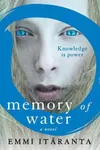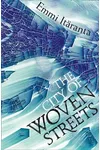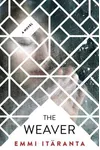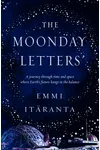Picture a Finnish storyteller who weaves dystopian worlds with the grace of a poet—meet Emmi Itäranta! Born in Tampere, Finland, in 1976, this bilingual author crafts novels in both Finnish and English, blending lyrical prose with urgent environmental themes. Her debut, Memory of Water, captivated readers worldwide, establishing her as a rising star in speculative fiction. Now living in the UK, Itäranta’s stories resonate with those who crave immersive tales that mirror our planet’s fragile future.
With a knack for creating vivid, haunting settings, Itäranta’s work feels like a love letter to nature and a warning about its loss. Her unique ability to write simultaneously in two languages sets her apart, making her novels a bridge between cultures. Ready to dive into her world? Let’s explore the journey of this remarkable author.
The Making of Emmi Itäranta
Emmi Itäranta grew up in Tampere, Finland, surrounded by Nordic landscapes that later inspired her vivid settings. She earned an MA in Drama from the University of Tampere, dabbling in theatre criticism, scriptwriting, and journalism. Her passion for storytelling led her to the University of Kent in the UK, where she pursued an MA in Creative Writing. It was here that Memory of Water began as a course project, evolving into a dual-language masterpiece that launched her career.
Influenced by literary giants like Ursula K. Le Guin and Margaret Atwood, Itäranta found her voice in speculative fiction. Her bilingual writing process—crafting novels in both Finnish and English—reflects her commitment to authenticity and accessibility. This blend of cultures and disciplines shaped her into a storyteller who tackles global issues with a deeply personal touch.
Emmi Itäranta’s Unforgettable Stories
Itäranta’s novels are lyrical dystopias, weaving environmental crises with human resilience. Her debut, Memory of Water (2014), is set in a water-scarce future where Noria, a tea master’s apprentice, guards a secret spring. The novel’s poetic prose and ecological focus earned it translations in over 20 languages, plus nominations for the Philip K. Dick and Arthur C. Clarke Awards. Critics praised its delicate balance of beauty and urgency, comparing it to Ishiguro’s Never Let Me Go.
Her second novel, The City of Woven Streets (2016, also known as The Weaver in the US), explores a sinking island where dreaming is forbidden. The protagonist, Eliana, uncovers a hidden network of power, blending urban fantasy with dystopian intrigue. Inspired by cities like Venice and Prague, the novel’s rich sensory details immerse readers in a world both alien and familiar. Itäranta’s third work, The Moonday Letters (2020), an epistolary sci-fi novel, won the Tähtivaeltaja Award for its innovative storytelling across space and time.
Itäranta’s style is defined by lush, sensory prose and themes of ecological collapse, cultural continuity, and quiet rebellion. Her worlds feel tangible, drawing from her travels and Finland’s stark beauty. Each novel invites readers to reflect on humanity’s relationship with nature, making her a standout in eco-punk and speculative fiction.
Why Emmi Itäranta Matters
Emmi Itäranta’s impact lies in her ability to make dystopian fiction feel intimate and urgent. Her focus on environmental themes resonates in an era of climate anxiety, earning her a dedicated following among readers who value storytelling with purpose. Awards like the Kalevi Jäntti Prize and Young Aleksis Kivi Prize highlight her influence in Finnish literature, while her global translations amplify her voice.
Beyond accolades, Itäranta inspires by showing how art can address pressing issues without preaching. Her bilingual writing process also breaks barriers, inviting diverse readers into her worlds. As a film adaptation of Memory of Water (titled The Guardian of Water) looms, her stories are poised to reach even wider audiences, cementing her legacy as a visionary author.
- Born: 1976, Tampere, Finland
- Key Works: Memory of Water (2014), The City of Woven Streets (2016), The Moonday Letters (2020)
- Awards: Kalevi Jäntti Prize, Young Aleksis Kivi Prize, Tähtivaeltaja Award
- Fun Fact: A polar bear cub was named Noria after her Memory of Water protagonist!
Snag Memory of Water and dive into Emmi Itäranta’s lyrical dystopias—your imagination will thank you!





